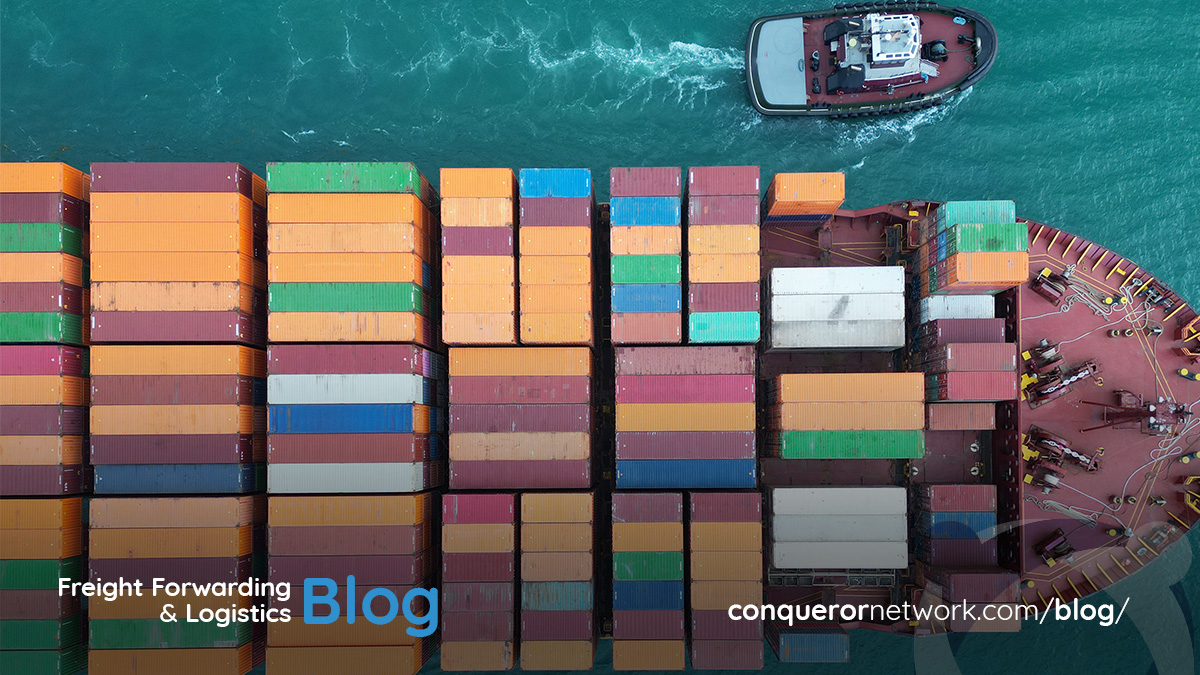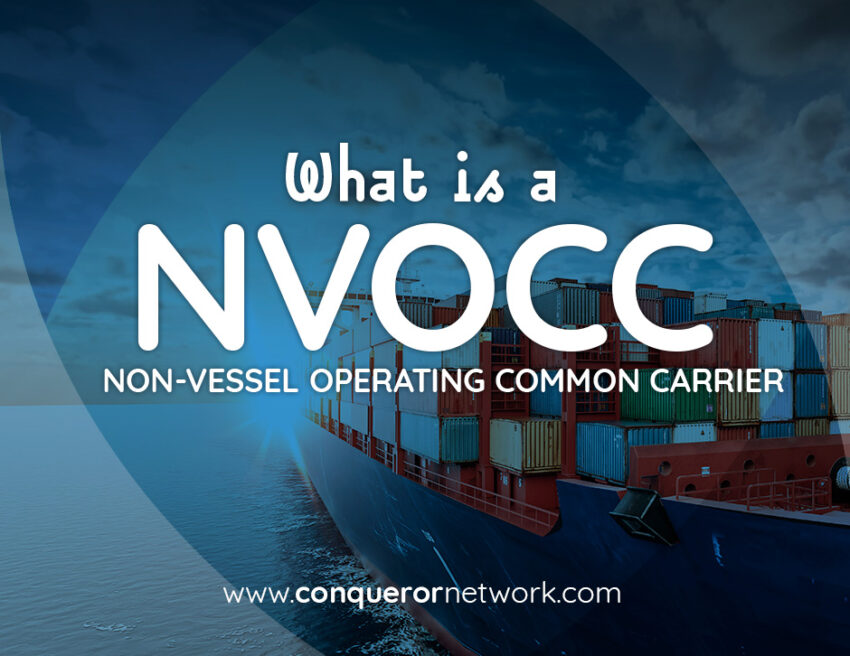Have you ever wondered how smaller logistics companies manage to secure space on colossal container vessels alongside global shipping giants? Or how independent freight forwarders successfully handle complex international shipments without owning a single ship? The answer lies in a powerful intermediary within the maritime shipping ecosystem — the NVOCC, or Non-Vessel Operating Common Carrier. Understanding NVOCC benefits for freight forwarders is key to unlocking greater flexibility, global reach, and competitive pricing in a fast-moving logistics landscape.

According to a recent report by Allied Market Research, the global freight forwarding market is projected to reach $285 billion by 2031, driven largely by the rise of cross-border e-commerce and ocean freight demands. In this expanding logistics landscape, NVOCCs play a crucial role by bridging the gap between shippers, freight forwarders, and ocean carriers. Yet, for many small and mid-sized forwarders, the full advantages of collaborating with an NVOCC remain underexplored.
In this blog, we’ll unpack what an NVOCC is, how it differs from a traditional freight forwarder, and why forming partnerships with NVOCCs can be a game-changing move for freight forwarding businesses, especially in today’s highly competitive and capacity-constrained market.
Understanding the role of an NVOCC and NVOCC benefits for freight forwarders
The term NVOCC stands for Non-Vessel Operating Common Carrier. Despite what the name might suggest, an NVOCC doesn’t own or operate any ships. Instead, it functions as a carrier to shippers and as a shipper to ocean carriers. In practical terms, this means an NVOCC books container space directly with vessel-operating common carriers (VOCCs), consolidates cargo from multiple shippers, issues its own House Bills of Lading (HBL), and assumes certain responsibilities similar to those of a carrier.
NVOCCs typically handle ocean freight logistics, arranging for the transportation of goods, consolidating shipments, and managing essential documentation such as Bills of Lading and cargo manifests. In many jurisdictions, particularly in the United States, NVOCCs must be licensed by regulatory bodies like the Federal Maritime Commission (FMC) to operate legally and offer their services.
While they don’t physically transport the cargo across oceans, their influence in securing freight space, negotiating rates, and streamlining shipping processes makes them indispensable players in the logistics chain.
NVOCC vs. freight forwarder: What’s the difference?
The logistics industry is rife with overlapping terminologies, and one of the most common areas of confusion is the distinction between an NVOCC and a freight forwarder. While both operate in the international shipping sphere, their functions and legal responsibilities differ.
A freight forwarder acts primarily as an agent for the shipper. Their role involves coordinating the movement of goods from one point to another, handling documentation, and liaising with carriers on behalf of the customer. They often provide additional services like customs brokerage, cargo insurance, and warehousing.
On the other hand, an NVOCC acts as a carrier to the shipper by issuing its own House Bill of Lading and assuming responsibility for the cargo’s ocean transportation, even though it doesn’t operate the vessel itself. To the ocean carrier, the NVOCC is a customer, booking container space and managing multiple shipments under a single Master Bill of Lading (MBL).
The legal distinction also matters. In cases of cargo loss or damage, the NVOCC might bear carrier liability depending on the terms of the Bill of Lading it issues, whereas a freight forwarder typically holds limited liability unless it directly contracts transportation services.
Why should freight forwarders partner with an NVOCC?
With the basics of what an NVOCC does established, let’s delve into why freight forwarders — particularly independent and small-to-mid-sized operators — should consider collaborating with these vital intermediaries.
Access to better freight rates and guaranteed space
In today’s volatile shipping environment, securing container space at competitive rates can be challenging, especially during peak seasons or in tight markets like Asia-Europe or Transpacific routes. NVOCCs, thanks to the consolidated volumes they manage, often negotiate more favorable rates with ocean carriers than individual freight forwarders can on their own.
For a forwarder moving occasional or small consignments, partnering with an NVOCC can provide access to these bulk-negotiated rates and reliable space allocations. This is particularly crucial during times of disruption when vessel space becomes scarce, and ocean carriers prioritize their larger customers.
Simplified documentation and compliance
International ocean freight requires meticulous documentation, from Bills of Lading and cargo manifests to certificates of origin and hazardous goods declarations. NVOCCs typically handle much of this paperwork, streamlining the shipping process for freight forwarders and reducing the risk of documentation errors that could lead to costly delays or penalties.
Additionally, NVOCCs remain up to date with international shipping regulations, customs requirements, and documentation standards, acting as valuable compliance partners for freight forwarders who might lack specialized expertise in these areas.
Expanded global reach without massive investment
One of the greatest barriers for small and mid-sized freight forwarders is expanding their international presence. Setting up overseas offices or securing direct contracts with multiple ocean carriers can be prohibitively expensive and operationally complex.
NVOCCs fill this gap by offering established global networks, local agency support, and logistics infrastructure that forwarders can tap into without heavy investment. Whether it’s arranging port-to-port movements or providing last-mile delivery services in foreign markets, NVOCC partnerships enable freight forwarders to offer seamless international shipping solutions to their clients.
Enhanced service portfolio and value-added solutions
Modern NVOCCs go beyond basic port-to-port services, providing a suite of value-added offerings such as cargo consolidation, multimodal transport solutions, container leasing, and warehousing options. By partnering with an NVOCC, freight forwarders can integrate these services into their portfolio, enhancing their competitiveness and catering to a broader range of customer requirements.
This collaboration also allows forwarders to diversify their service offerings, moving beyond traditional FCL (Full Container Load) and LCL (Less than Container Load) services to include specialized shipments like project cargo, temperature-controlled freight, and dangerous goods.
Risk mitigation and liability management
Partnering with an NVOCC can also serve as a risk mitigation strategy. As NVOCCs issue their own House Bill of Lading and assume certain liabilities during ocean transport, they help shield freight forwarders from direct exposure to risks associated with cargo loss, delays, or damage. This structure allows forwarders to offer reliable services while minimizing their financial and legal risks.
Moreover, reputable NVOCCs maintain comprehensive liability insurance and established claims procedures, providing peace of mind to both forwarders and their customers.
The future of NVOCC-freight forwarder collaboration
As global trade continues to evolve, so too will the relationship between NVOCCs and freight forwarders. The rise of digital freight platforms and automated booking systems is pushing traditional logistics providers to rethink their operational models. In this environment, NVOCCs that invest in technology, online visibility tools, and integrated logistics platforms will offer even greater value to their freight forwarding partners.
Additionally, as sustainability becomes a more pressing concern in international shipping, forwarders can rely on NVOCCs to provide eco-friendly shipping options and help navigate new regulatory requirements aimed at reducing carbon emissions.
Conclusion
In an increasingly interconnected and competitive logistics landscape, freight forwarders must leverage strategic partnerships to stay agile and profitable. Partnering with an NVOCC offers tangible advantages, from accessing better rates and guaranteed space to expanding service offerings and simplifying complex international shipping processes.
As global trade routes shift and supply chains become more intricate, the collaborative relationship between freight forwarders and NVOCCs will be pivotal in ensuring seamless, cost-effective, and compliant cargo movement worldwide. For independent freight forwarders looking to enhance their operational capacity without significant capital outlay, aligning with a reliable NVOCC might just be the smartest move they make this year.


